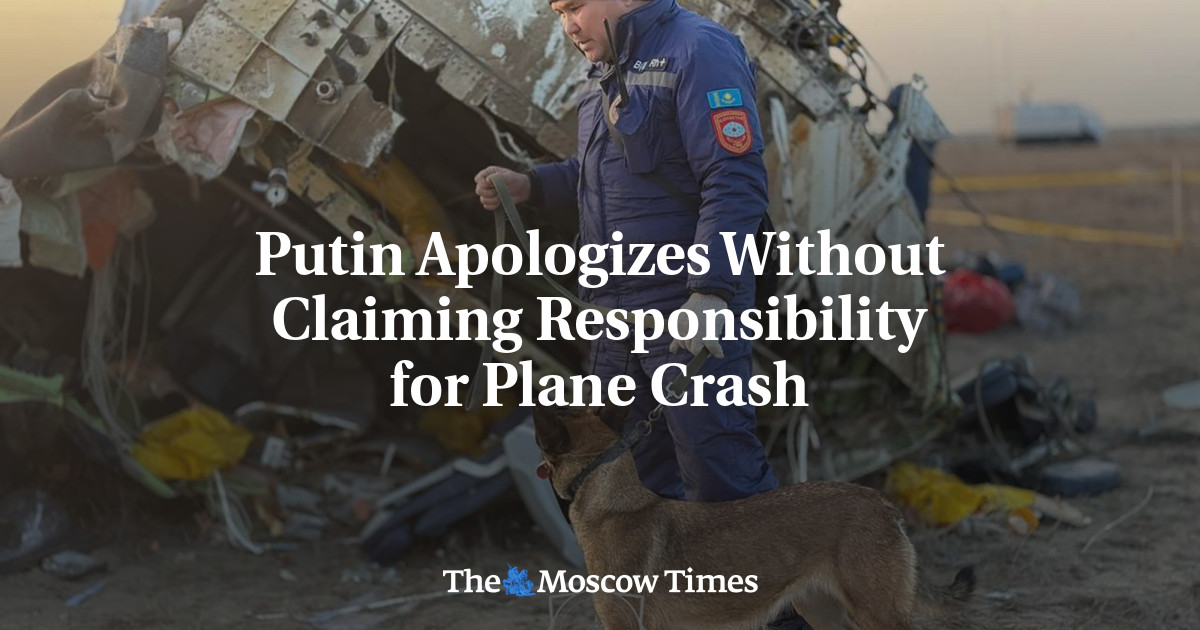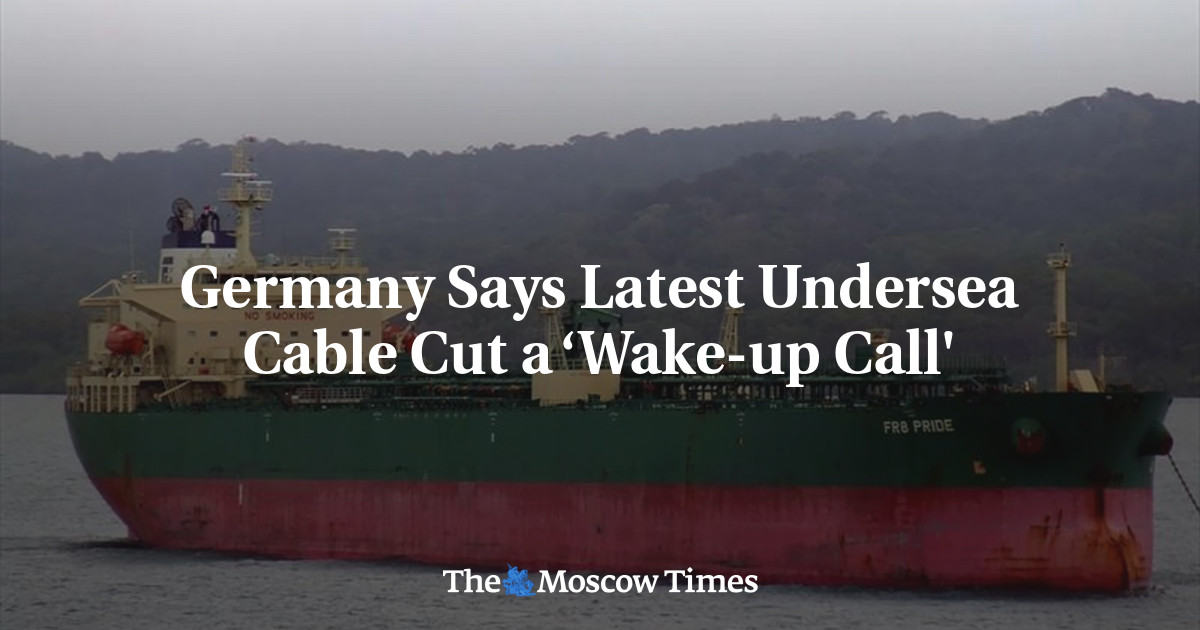PODOLSK, Moscow region – Residents across Russia affected by unprecedented winter heating outages in recent days have expressed their frustration and urged local authorities to restore heating in their homes.
In Podolsk, a town some 30 kilometers south of the capital Moscow, at least 149,000 residents — nearly half of its population — were left in the cold when a heating main burst at a nearby private ammunition plant.
“It’s a total disgrace. There is no heating and no hot water. We have to sleep in sleeping bags,” Yuri, a local resident, told The Moscow Times.
“I have no words to describe how bad the situation is," said Yuri, who declined to provide his surname. "We have had no heating for almost six days."
The Moscow region, where temperatures have plunged to as low as minus 20 degrees Celsius in the past week, as well as the Far East Primorye region, the cities of Moscow and St. Petersburg, Penza, the southern Voronezh and Volgograd regions and others, have all been affected by heating outages this winter.
In the Tver region, a group of residents filmed an appeal to President Vladimir Putin, saying that they “are freezing from the cold” in the village of Novozavidovsky.
“We're literally being killed by the cold,” a woman in the video said, adding that they have been sending requests to local authorities since September after their houses were connected to a boiler room whose power was reportedly insufficient.
“This is some kind of torture and extermination of the population 100 kilometers from Moscow,” she added.
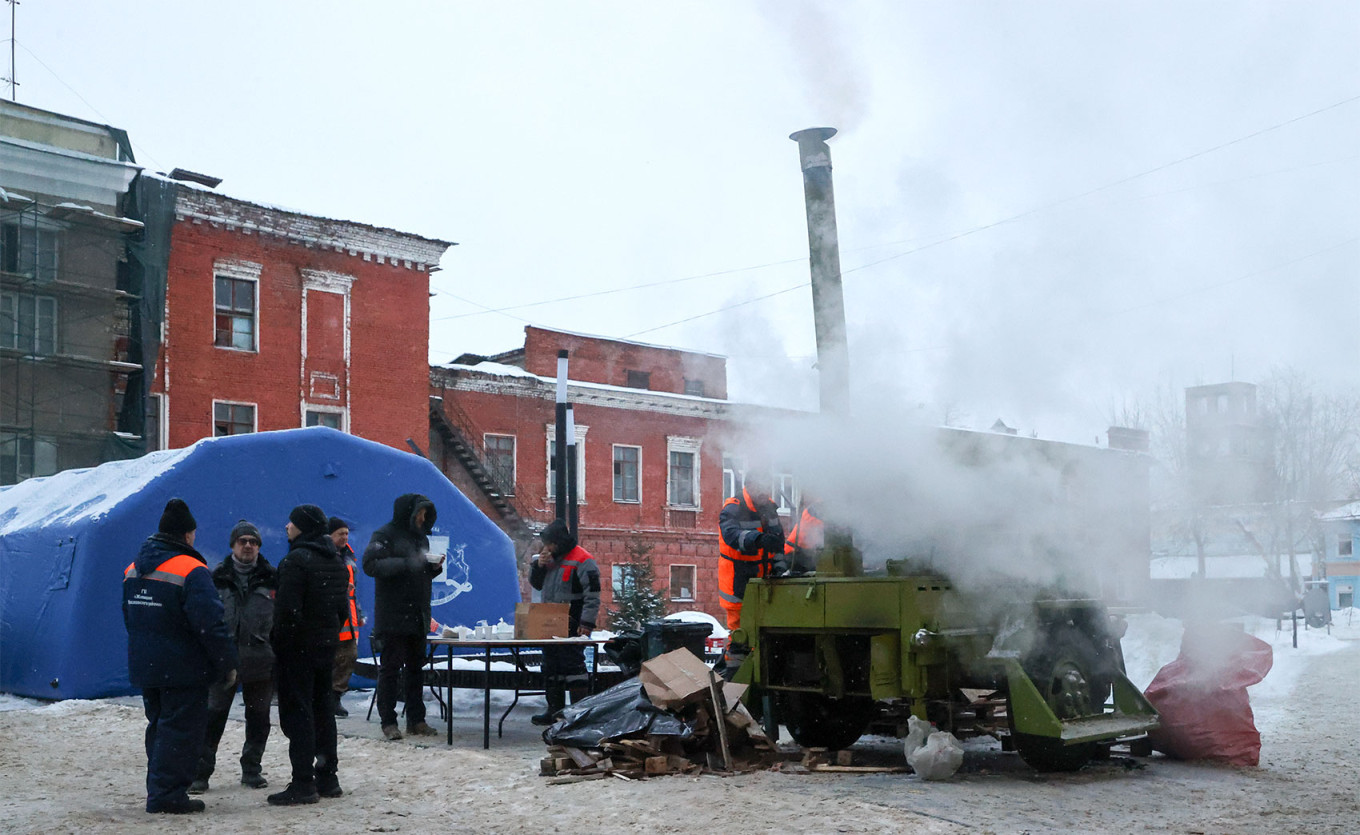 A field kitchen at a heating point in Podolsk.
Sergei Petrov / NEWS.ru / TASS
A field kitchen at a heating point in Podolsk.
Sergei Petrov / NEWS.ru / TASS
Residents of the Moscow region town of Elektrostal lit a fire in the street to draw the authorities’ attention to the heating problem.
“It’s impossible to stay in our houses. We're freezing!” a group of women in the video said.
Suffering from subzero temperatures, residents are placing the blame on local authorities and utility services for failing to take necessary precautions and not taking action to resolve the situation.
“We are sending complaints everywhere but no one listens to us. We have portable heaters working in every room, but the temperature inside is still 10 degrees Celsius,” Yelena from Podolsk said.
“There is a clinic and a hospital, as well as kindergartens, where there is no heating. And we have no answers, no assistance, no explanation,” Yelena added.
Placing the blame
Podolsk authorities opened temporary heating centers and declared a state of emergency.
Local authorities linked the heating problems to the fact that the town is heated by a boiler plant owned by the Klimovsk Specialized Ammunition Plant, a private ammunition factory and one of the largest weapon cartridge production enterprises in the country.
“The facility is under tight security conditions, which limits our ability to oversee winter preparations,” the Moscow region’s Vice Governor Yevgeny Khromushin said last week. “We were unaware of the problem for nearly a day.”
An unidentified Moscow region official and two senior executives at the plant were arrested on suspicion of providing unsafe services, Russia’s Investigative Committee, which probes major crimes, said Tuesday.
Investigators said that Podolsk’s deputy mayor was accused of misusing authority by issuing a readiness certificate for the boiler house at the plant.
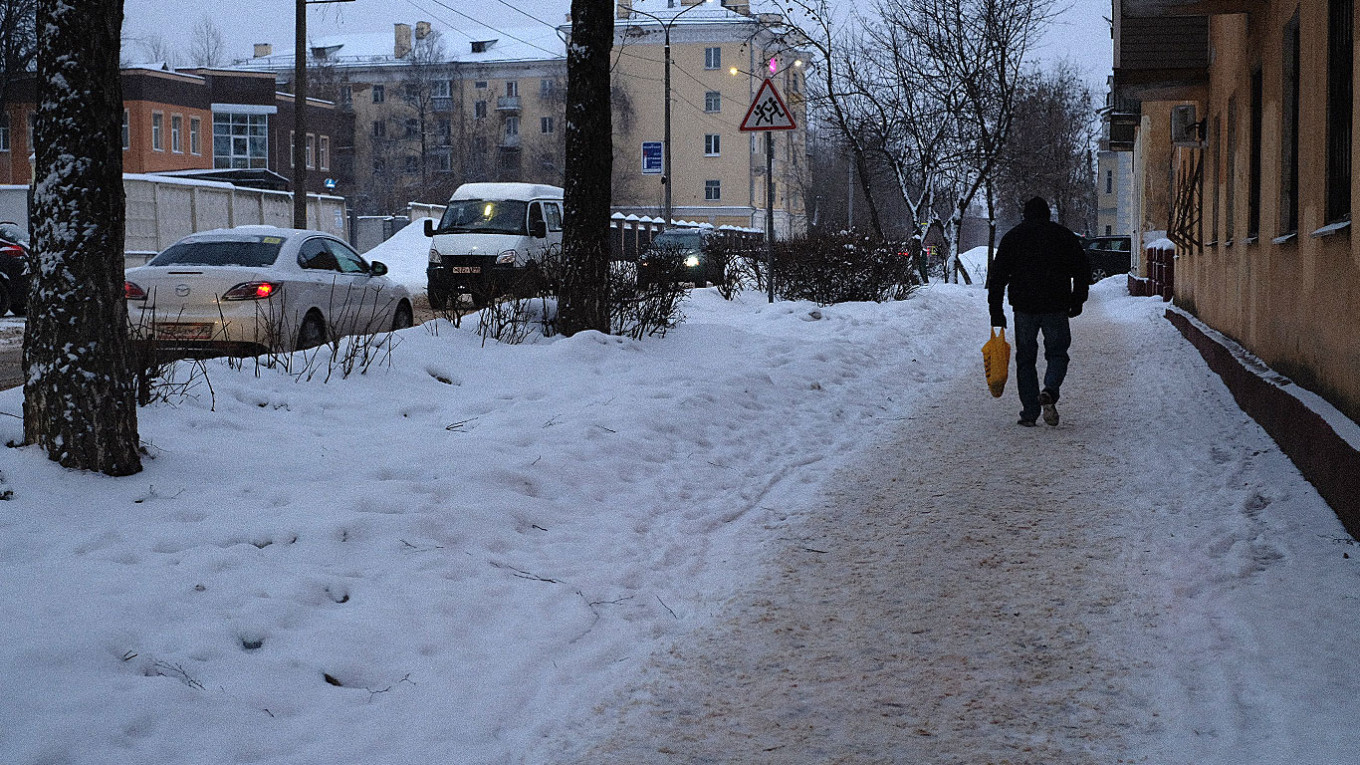 A street in Podolsk, Moscow region.
MT
A street in Podolsk, Moscow region.
MT
In the neighboring Tver region, authorities opened a criminal case over the laundering of over 84 million rubles ($938,993) in residents' heating bills, the Astra Telegram channel reported this week, citing unidentified sources. Investigators claim the heads of the local water intake and boiler house misappropriated the payments for personal use.
Reacting to the heating failures, Putin on Tuesday asked Emergency Situations Minister Alexander Kurenkov to provide heat and electricity to the affected residents.
The outages appear to be the latest effect of several decades of crumbling infrastructure, which has been linked to endemic corruption and mismanagement.
The overall decay of Russia's municipal infrastructure surpassed 70% in 2022, the pro-Kremlin newspaper Izvestia reported.
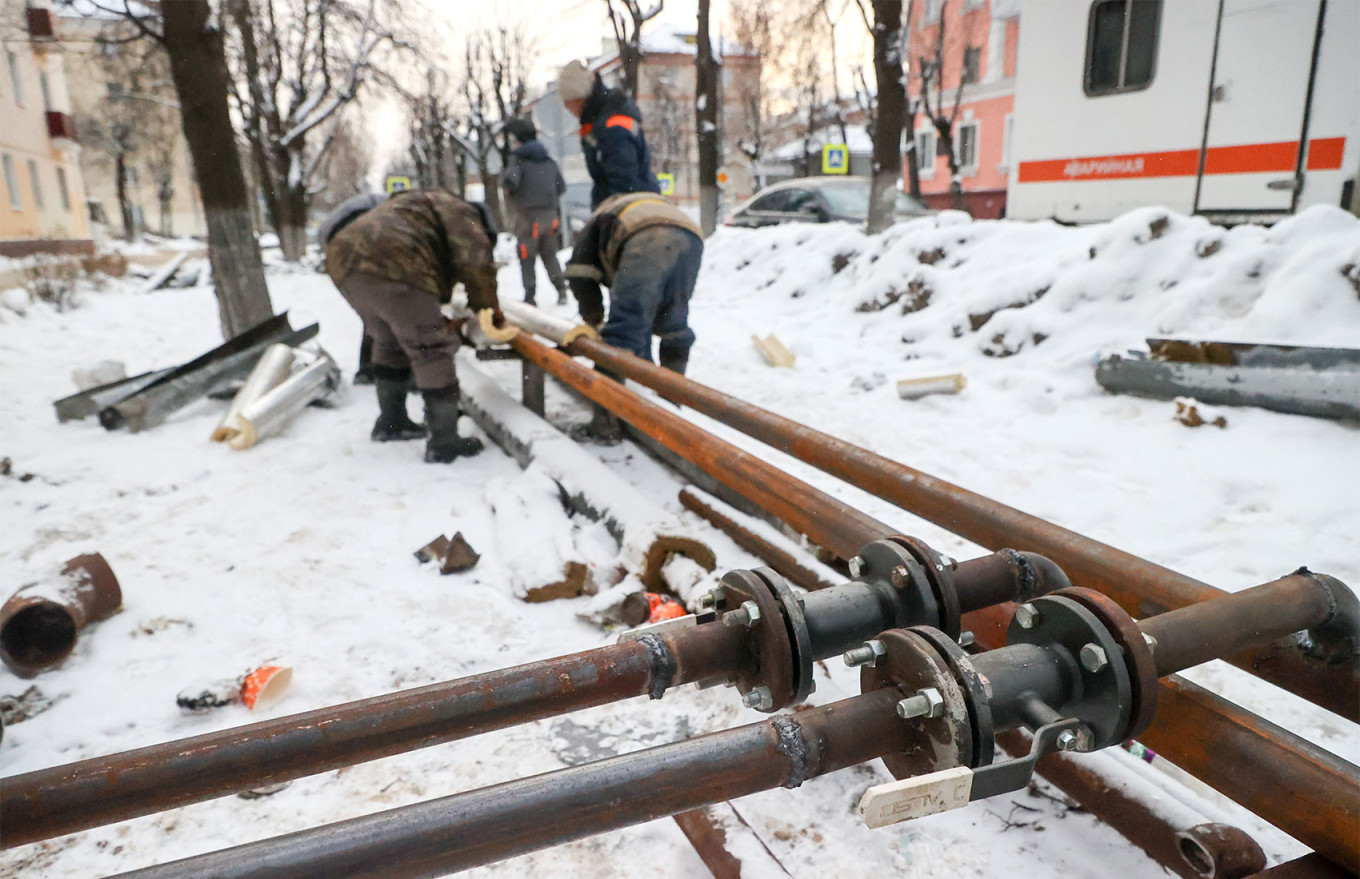 An emergency repair crew laying a temporary water pipeline in Podolsk.
Sergei Petrov / NEWS.ru / TASS
An emergency repair crew laying a temporary water pipeline in Podolsk.
Sergei Petrov / NEWS.ru / TASS
According to Sergei Pakhomov, head of the State Duma’s Construction, Housing and Utilities Committee, water pipes that were 90 years old or even older were still in use as recently as two years ago in some cases.
Housing, utilities and communal services are a common source of problems for Russians during the winter.
In St. Petersburg, extensive ice coverage on city streets and sidewalks is a chronic source of complaints, with many people ending up in the hospital over the years due to slipping and falling accidents.
In the Siberian republic of Khakassia, two villages were left without electricity last month due to apparent issues with outdated communication systems.
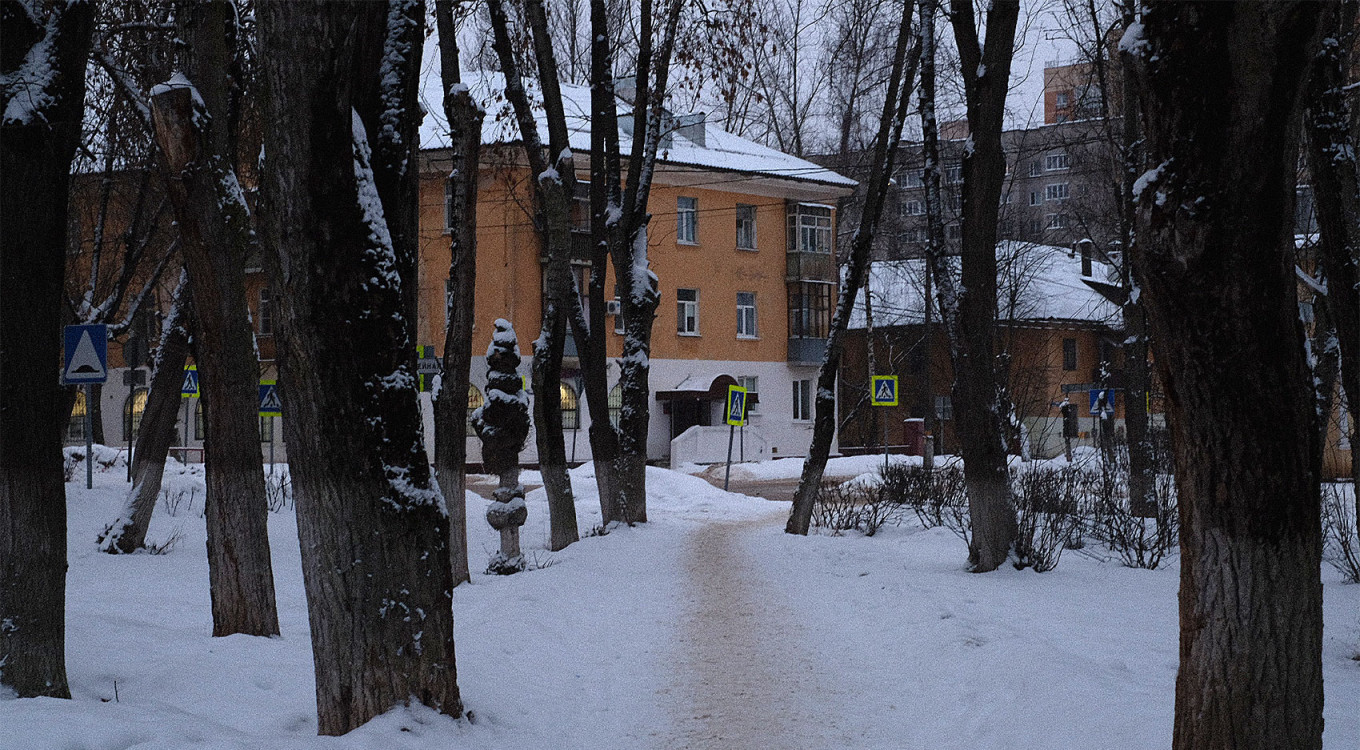 Podolsk, Moscow region.
MT
Podolsk, Moscow region.
MT
In the winter of 2020, five people in the Perm region were killed after a pipe burst.
When asked about the latest heating outages, Kremlin spokesman Dmitry Peskov acknowledged the problems and linked them to poor municipal infrastructure, saying that people “had to endure a lot of inconvenience in the cold and without electricity.”
"Despite all the titanic efforts to update all housing and communal services systems, there's still a certain part that remains considerably deteriorated. These programs will continue, but it is impossible to update all pipes and all housing and communal services systems in 10-15 years,” Peskov said.
As for now, those affected by heating issues appear to lack optimism that the problems will be solved efficiently.
"It's been a week since we've had heating, and the temperature in my apartment is around 11 degrees Celsius,” Podolsk resident Lidiya told The Moscow Times.
“Unfortunately, no one knows when it will be repaired,” she said.
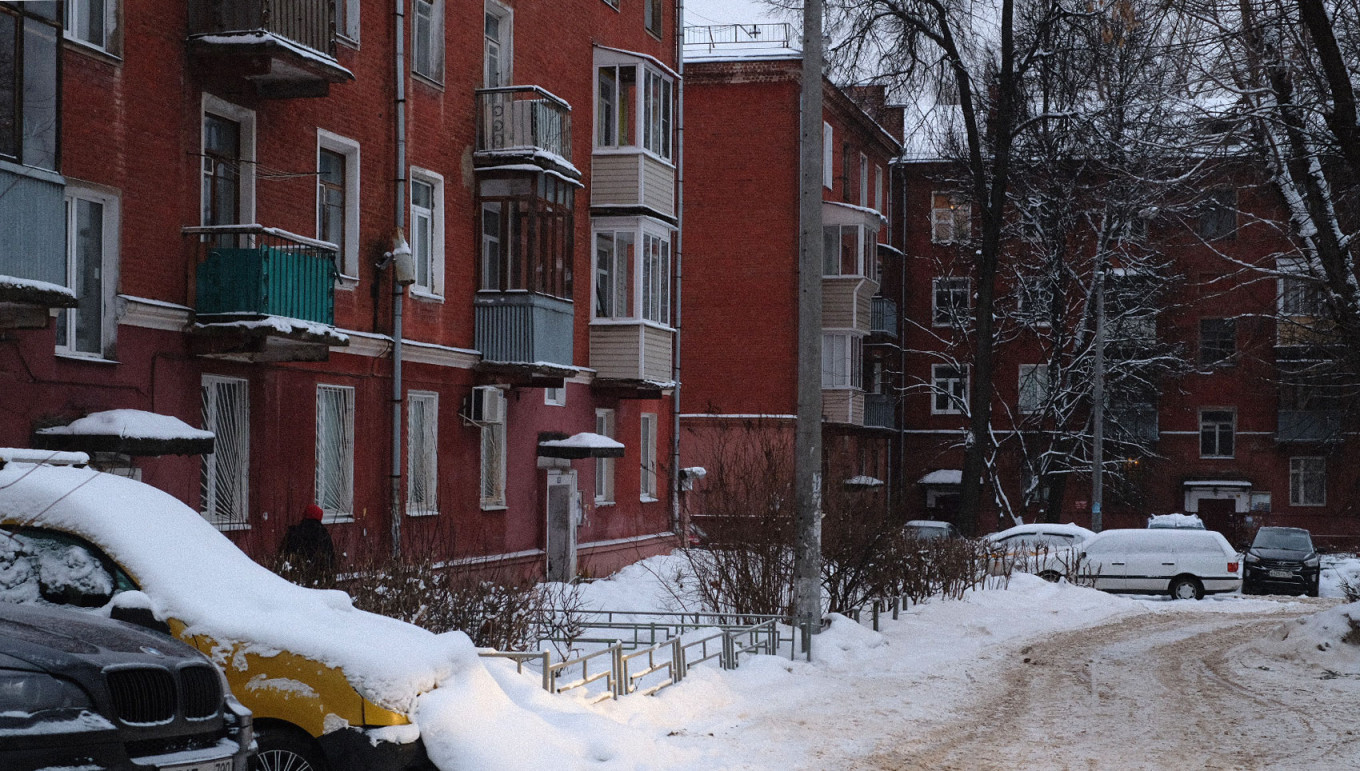 Apartment blocks in Podolsk, Moscow region.
MT
Apartment blocks in Podolsk, Moscow region.
MT
 (1).png)
 11 months ago
37
11 months ago
37
